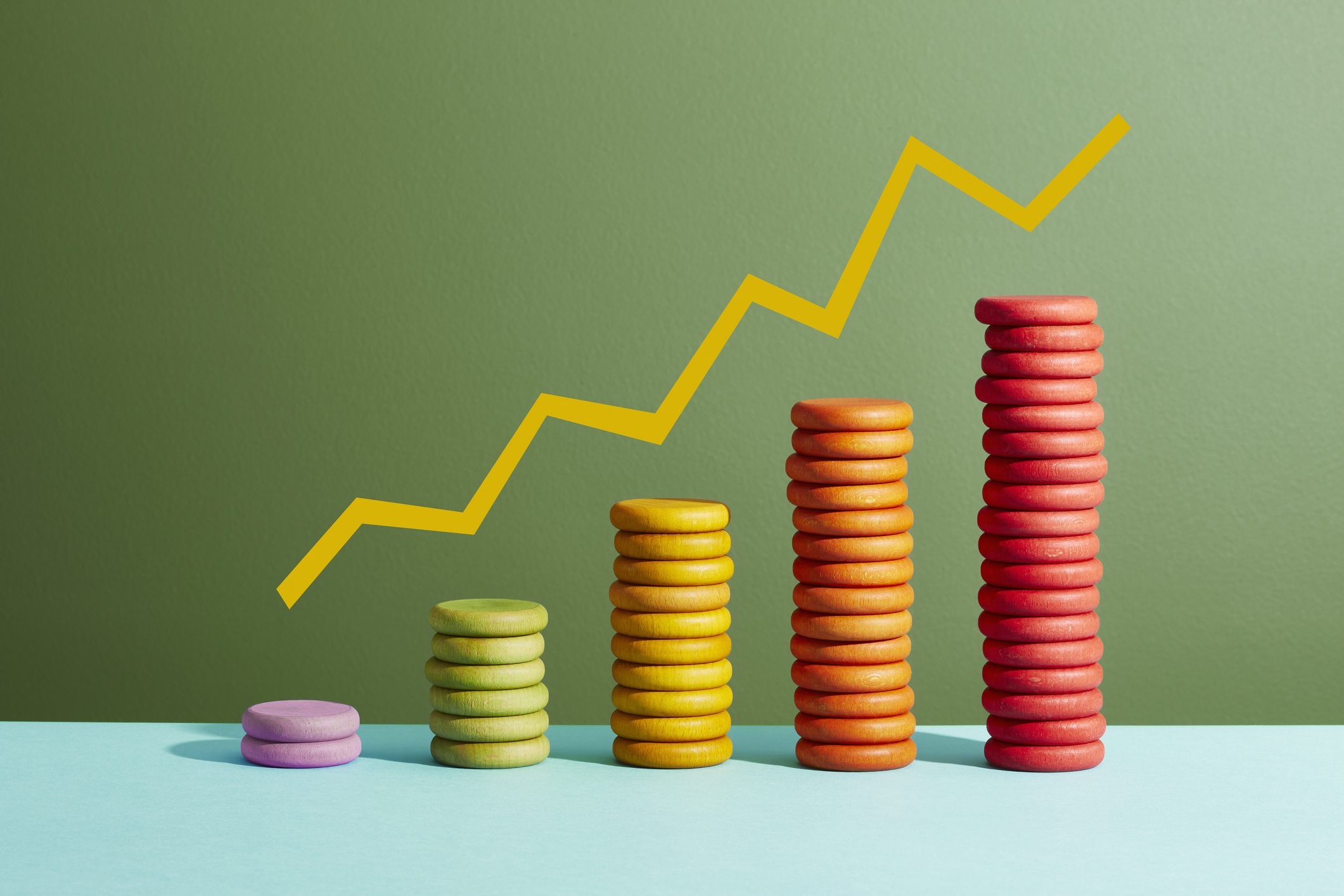When Is the Next CPI Report?
When does the next CPI report land and what inflation rate is expected?


Profit and prosper with the best of Kiplinger's advice on investing, taxes, retirement, personal finance and much more. Delivered daily. Enter your email in the box and click Sign Me Up.
You are now subscribed
Your newsletter sign-up was successful
Want to add more newsletters?
"When is the next CPI report?" was a question no one was asking back in the days of 2% inflation readings.
But a sluggish jobs market and softer inflation data could lead the Federal Reserve to adopt a more hawkish policy toward interest rates as 2026 gets underway.
For years after the Great Financial Crisis, no one was too concerned about when the next CPI report was due. Inflation, regardless of how the Fed measured it, remained below target for ages.
From just $107.88 $24.99 for Kiplinger Personal Finance
Become a smarter, better informed investor. Subscribe from just $107.88 $24.99, plus get up to 4 Special Issues

Sign up for Kiplinger’s Free Newsletters
Profit and prosper with the best of expert advice on investing, taxes, retirement, personal finance and more - straight to your e-mail.
Profit and prosper with the best of expert advice - straight to your e-mail.
The CPI question regained new importance when inflation hit a four-decade high in 2022, prompting the Federal Reserve to embark on its most aggressive campaign of interest rate hikes since the late Carter and early Reagan administrations.
Though inflation peaked back in 2022, the implementation of price-raising tariffs and a mostly resilient labor market have made the central bank exceedingly careful about reducing the federal funds rate from its current range of 3.50% to 3.75%.
Ease too soon, the thinking goes, and inflation could resurface, forcing the Fed to pivot back to rate hikes. Abrupt policy changes do not redound to the central bank's credibility.
That's why the Consumer Price Index, or CPI report, has become one of the market's most highly anticipated economic reports.
Markets desperately want the Fed to make the cost of capital as cheap as possible. Lower rates today equal higher returns tomorrow. There's also the concern that elevated rates could cause the economy to fall into a recession.
This explains the market's obsession with the next CPI report. And the one after that, and the one after that.
What is the CPI report?
The CPI report is released monthly by the Bureau of Labor Statistics, based on price data collected over the course of the month.
Per the BLS, prices for the goods and services used to calculate the CPI are collected in 75 urban areas throughout the country and from about 23,000 retail and service establishments.
Data on rents are collected from about 50,000 landlords or tenants. The weight for an item is derived from reported expenditures on that item as estimated by the Consumer Expenditure Survey.
The CPI report is broken down into many subcategories, but the two main ones you'll hear most about on CPI day are headline CPI and core CPI. The headline number is the main inflation gauge. Core CPI excludes volatile food and energy prices, and is considered to be a better predictor of future inflation.
The data are expressed as percent changes and are measured both year over year and month to month.
CPI vs PCE
Although the inflation data will certainly influence what the central bank does at the next Fed meeting, the CPI report is not the Fed's preferred inflation gauge. Rather, the Fed sets its long-term 2% target based on data contained in the Personal Consumption Expenditures Price Index.
While it's true the two barometers correlate closely, they measure inflation differently. As James Bullard, former president and chief executive officer of the Federal Reserve Bank of St. Louis, explains:
The FOMC focused on CPI inflation prior to 2000 but, after extensive analysis, changed to PCE inflation for three main reasons: The expenditure weights in the PCE can change as people substitute away from some goods and services toward others, the PCE includes more comprehensive coverage of goods and services, and historical PCE data can be revised (more than for seasonal factors only).
There's more, but the bottom line is that the Fed believes the PCE index has some critical advantages over CPI when it comes to formulating monetary policy.
That said, CPI is the better-known inflation gauge and is probably more relatable to what consumers experience in their daily lives.
Either way, the FOMC was quick to cut rates in late 2024 but held off lowering the federal funds rate in 2025 until its September meeting, when it issued a quarter-percentage-point rate cut. It cut again in October and December.
Amid worries of weakness in the labor market, the odds of a January rate cut stand at just 5%, according to CME FedWatch, down from 22% a month ago. In other words, traders see a 95% chance of the FOMC standing pat when it next meets. More than 70% of traders expect no change to interest rates until June, after Jerome Powell's term as Fed chair is up.
Whatever the next CPI report reveals, it will certainly factor into the market's calculus regarding the path of borrowing costs.
"The Fed will watch to see if unemployment continues to trend upward, especially since recent CPI data reported cooler than expected inflation at 2.7% and the increase in real GDP by 4.3% in 3Q demonstrates durability," writes Jerry Tempelman, vice president of fixed income research at Mutual of America Capital Management. "If the December CPI released this month is in line with this result, it may support a hawkish environment at the start of 2026."
As for the next CPI report, which will be released ahead of the open on Tuesday, January 13, the Federal Reserve Bank of Cleveland's forecast sees the CPI increasing 2.6% on an annual basis in December. Core CPI is likewise expected to rise 2.9% year-over-year. On a monthly basis, CPI is forecast to 0.2%, while core CPI is expected to rise at a slightly higher rate of 0.22%.
Related Content
Profit and prosper with the best of Kiplinger's advice on investing, taxes, retirement, personal finance and much more. Delivered daily. Enter your email in the box and click Sign Me Up.

Dan Burrows is Kiplinger's senior investing writer, having joined the publication full time in 2016.
A long-time financial journalist, Dan is a veteran of MarketWatch, CBS MoneyWatch, SmartMoney, InvestorPlace, DailyFinance and other tier 1 national publications. He has written for The Wall Street Journal, Bloomberg and Consumer Reports and his stories have appeared in the New York Daily News, the San Jose Mercury News and Investor's Business Daily, among many other outlets. As a senior writer at AOL's DailyFinance, Dan reported market news from the floor of the New York Stock Exchange.
Once upon a time – before his days as a financial reporter and assistant financial editor at legendary fashion trade paper Women's Wear Daily – Dan worked for Spy magazine, scribbled away at Time Inc. and contributed to Maxim magazine back when lad mags were a thing. He's also written for Esquire magazine's Dubious Achievements Awards.
In his current role at Kiplinger, Dan writes about markets and macroeconomics.
Dan holds a bachelor's degree from Oberlin College and a master's degree from Columbia University.
Disclosure: Dan does not trade individual stocks or securities. He is eternally long the U.S equity market, primarily through tax-advantaged accounts.
-
 Why Some Michigan Tax Refunds Are Taking Longer Than Usual This Year
Why Some Michigan Tax Refunds Are Taking Longer Than Usual This YearState Taxes If your Michigan tax refund hasn’t arrived, you’re not alone. Here’s what "pending manual review" means and how to verify your identity if needed.
-
 If You'd Put $1,000 Into Caterpillar Stock 20 Years Ago, Here's What You'd Have Today
If You'd Put $1,000 Into Caterpillar Stock 20 Years Ago, Here's What You'd Have TodayCaterpillar stock has been a remarkably resilient market beater for a very long time.
-
 Good Stock Picking Gives This Primecap Odyssey Fund a Lift
Good Stock Picking Gives This Primecap Odyssey Fund a LiftOutsize exposure to an outperforming tech stock and a pair of drugmakers have boosted recent returns for the Primecap Odyssey Growth Fund.
-
 If You'd Put $1,000 Into Caterpillar Stock 20 Years Ago, Here's What You'd Have Today
If You'd Put $1,000 Into Caterpillar Stock 20 Years Ago, Here's What You'd Have TodayCaterpillar stock has been a remarkably resilient market beater for a very long time.
-
 Good Stock Picking Gives This Primecap Odyssey Fund a Lift
Good Stock Picking Gives This Primecap Odyssey Fund a LiftOutsize exposure to an outperforming tech stock and a pair of drugmakers have boosted recent returns for the Primecap Odyssey Growth Fund.
-
 More Tools to Build a Bond Ladder
More Tools to Build a Bond LadderVanguard aims to launch a line of target-maturity corporate bond ETFs.
-
 A Newly Retired Couple With a Portfolio Full of Winners Faced a $50,000 Tax Bill: This Is the Strategy That Helped Save Them
A Newly Retired Couple With a Portfolio Full of Winners Faced a $50,000 Tax Bill: This Is the Strategy That Helped Save ThemLarge unrealized capital gains can create a serious tax headache for retirees with a successful portfolio. A tax-aware long-short strategy can help.
-
 5 Retirement Myths to Leave Behind (and How to Start Planning for the Reality)
5 Retirement Myths to Leave Behind (and How to Start Planning for the Reality)Separating facts from fiction is an important first step toward building a retirement plan that's grounded in reality and not based on incorrect assumptions.
-
 I'm a Financial Adviser: Silence Is Golden, But It Hurts Your Heirs More Than You Think
I'm a Financial Adviser: Silence Is Golden, But It Hurts Your Heirs More Than You ThinkTalking to heirs about transferring wealth can be overwhelming, but avoiding it now can lead to conflict later. Here's how to start sharing your plans.
-
 Dow Dives 521 Points as Goldman, AmEx Slide: Stock Market Today
Dow Dives 521 Points as Goldman, AmEx Slide: Stock Market TodayNews of Block's massive layoffs exacerbated AI worries across the financial sector.
-
 The Merger Market is Heating Up. Here's How to Cash In
The Merger Market is Heating Up. Here's How to Cash InInvesting in takeover deals can be a low-volatility way to diversify your portfolio.